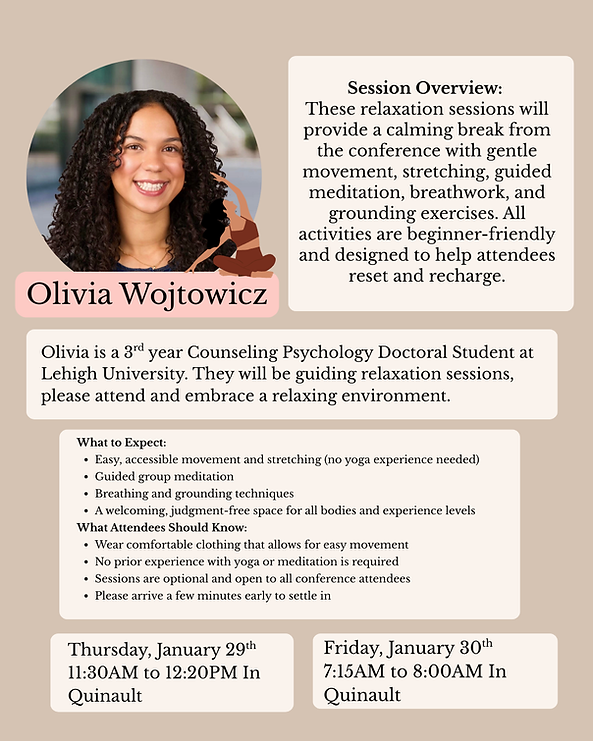top of page


PDF Schedule






Wednesday, January 28, 2026 - 1:00 PM to 5:00 PM
Pre-conference workshops
Workshop 1
Title: Reinfusing Client's Sociocultural Content into Therapy: A Cultural Analysis Toolkit.
Presenters: Nicole L. Johnson, Ph.D. and Pamela Papendick Remer, Ph.D.
Workshop 2
Title: The Psychology of Radical Healing.
Presenters: Hector Y. Adames, Ph.D., Grace A. Chen, Ph.D., Bryana H. French, Ph.D., Jioni A. Lewis, Ph.D. & Helen A. Neville, Ph.D.
6:00 PM to 8:00 PM
Opening Ceremony
Thursday, January 29, 2026 - Friday, January 30, 2026
Presentations, Poster Sessions and Social Activities
*Continuing Education credits will be provided.*
bottom of page
